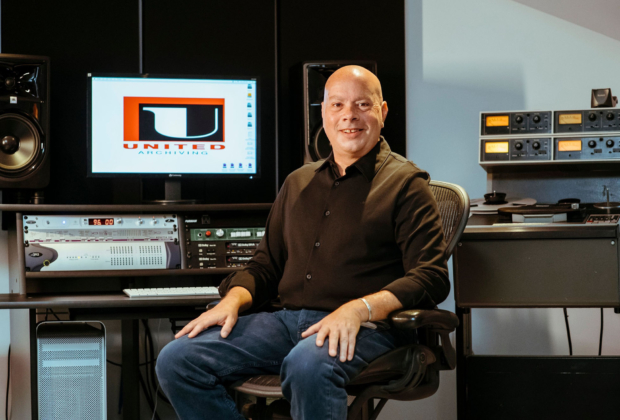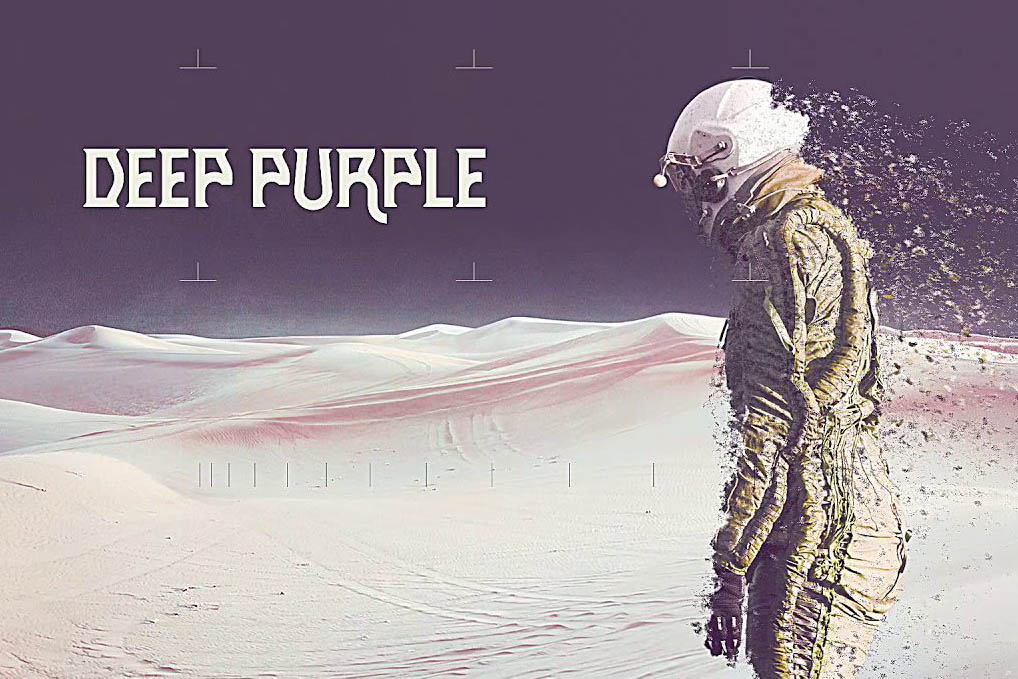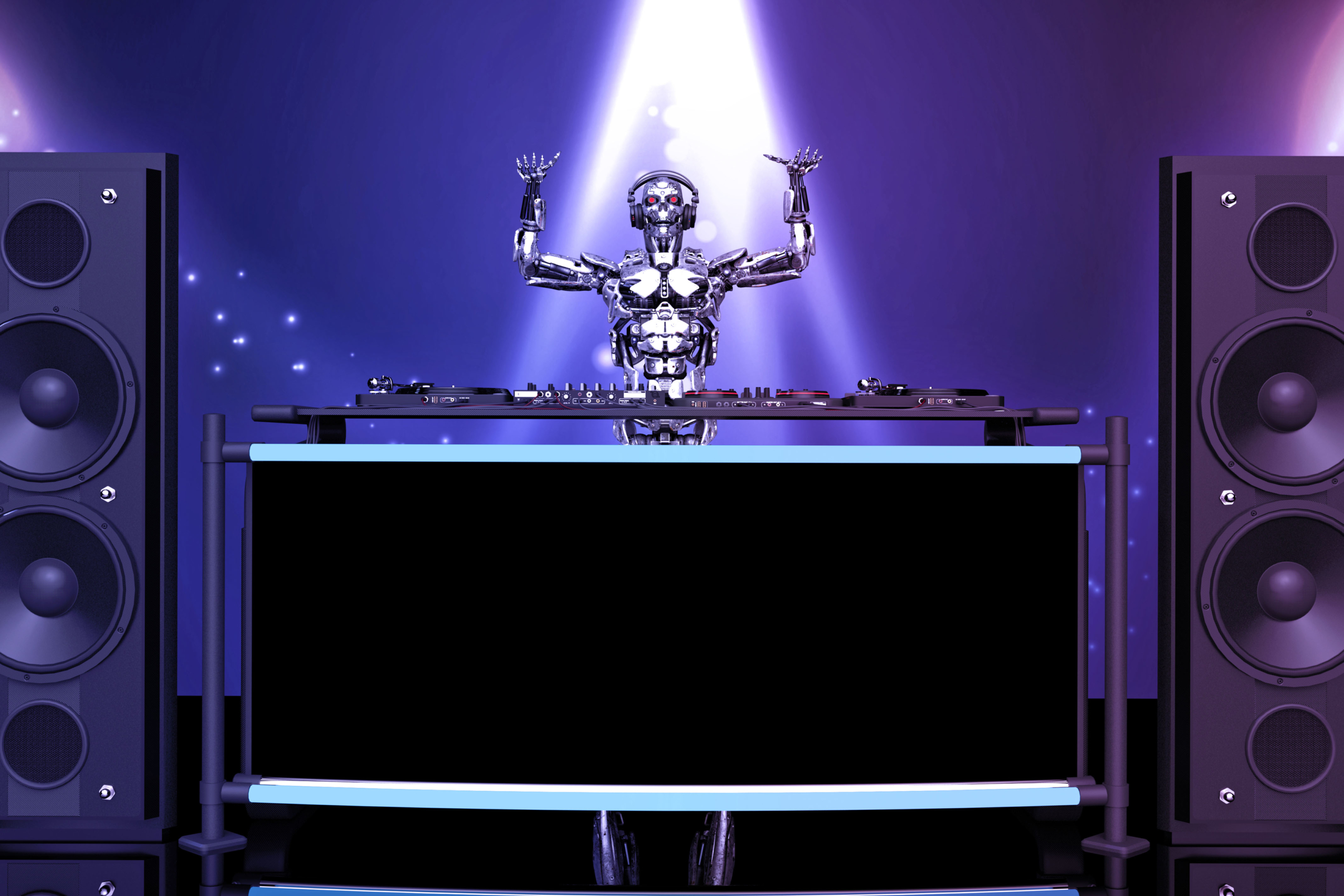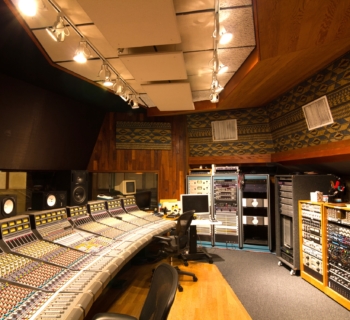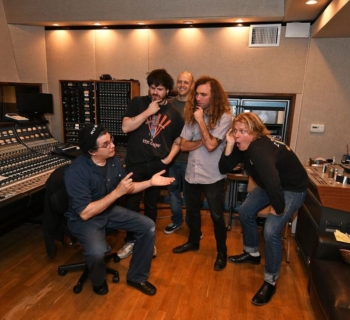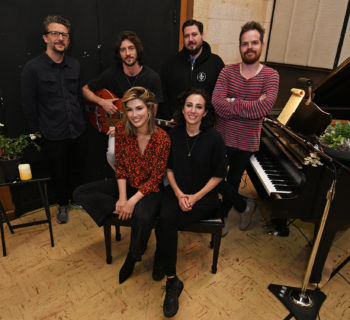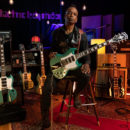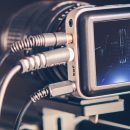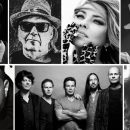Bill Smith recalls the moment when he read the liner notes on one of his father’s Herb Alpert & the Tijuana Brass records. It's the day he realized that he was destined to become a recording engineer.
He didn’t imagine then that he’d go on to work for 36 years with legends such as Quincy Jones, Barbra Streisand and Paul McCartney. He’s also labored alongside famed Beatles engineer Geoff Emerick. But that was all in the first phase of his career.
At the dawn of 2020 he embarked on the second phase when he became Chief Archiving Engineer with United Archiving at the historic United Recording Studios.
The company launched its audio archiving service in 2016. Since Smith joined, he’s expanded its gear collection so that now virtually no stored audio is beyond his reach. In short, clients deliver tapes and other archives—many of which have suffered various damages—and it’s Smith’s job to extract the content and move it into a digital format or sometimes even do an analog- to-analog transfer. “Basically, we convert older, obsolete formats into a high-resolution broadcast wave format—24-bit, 96k or 192k with Pro Tools as the front end,” he explains. “Old analog tapes can have all sorts of encoding and noise reduction too, which complicates things.”
Once the art of archiving is explored in depth, the nuances and intricacies begin to surface. Stored audio comes through the door in conditions that range from nearly pristine to something approaching dust. But there's yet to be a source that Smith has been unable to salvage. “There’s always something you can do,” he asserts. “With enough love and care—sometimes you have to unspool [tape] inch-by-inch to clean and re-lubricate it—you can get that stuff back, even in the worst conditions. Digital tape is a different animal. It’s not recorded in the same way as analog. If there's a dropout in the chorus, sometimes you can grab it from an earlier or later one. There might also be a safety tape [from which] you can copy the missing piece. Digital is far less forgiving than analog.”
All tape will degrade over time. One of the ways archivists reclaim damaged media is to bake it. United does so with its lab-grade Yamato oven. Smith finds that once a tape is baked, there’s a small window in which the audio can be captured before it starts to degrade again, so he does it within 24 hours.
There’s also a limit to how many times a single reel can be baked before the law of diminishing returns kicks in. Even after they’ve been in the oven, the job isn’t always over. “Some tapes will still shed some oxide because of their age,” he observes. The majority of times, tapes from the ‘60s are in better shape than tapes from the ‘70s and ‘80s. That’s because they were made before companies began to monkey around with the formulations. That’s what gave us the whole sticky-shed syndrome. Tapes from the ‘60s inherently don’t suffer from the issues of more modern ones unless they’ve been stored horribly.”
While the countless hardware and cabling requirements to access ancient audio are often vexing, they’re not Smith’s biggest challenge. Rather, maintaining the vast array of necessary vintage gear is what looms large. “You’re dealing with machines that are sometimes 40 years old,” he explains. “Like the [1980] Mitsubishi X-80, for example. They only made two hundred of them and the only spare parts you’re going to find are if you can get a second machine and gut it. So you have to maintain the machines at all times. One of United’s great advantages is that we’ve got Mike Guerra on staff. He’s one of the best techs in L.A.”
United Recording Studios was established as United Recording Corp. in 1957 by noted engineer Bill Putnam. In 1985, Allen Sides purchased the building along with Putnam’s Western Recorders next door at 6000 Sunset and renamed both Ocean Way Recording. Sides sold the 6000 Sunset building in 1999, which then became Cello––now EastWest Studios. He sold the building at 6050 Sunset to Hudson Pacific Properties in 2013, which renamed it United Recording in 2014.
According to Smith, several things set United apart from other services. “You’re dealing with an archiving department that’s attached to one of the more famous studios in the world with a reputation for professionalism and integrity,” Smith says. “The room is built specifically for this type of work. All clean electric power and anti-static floors, for example. Few if any archiving facilities have someone who heads the department with a background like mine. I’ve engineered records for 36 years in the trenches and have used all of these formats. A lot of archiving is like piecing together artifacts from Tutankhamun’s tomb.”

